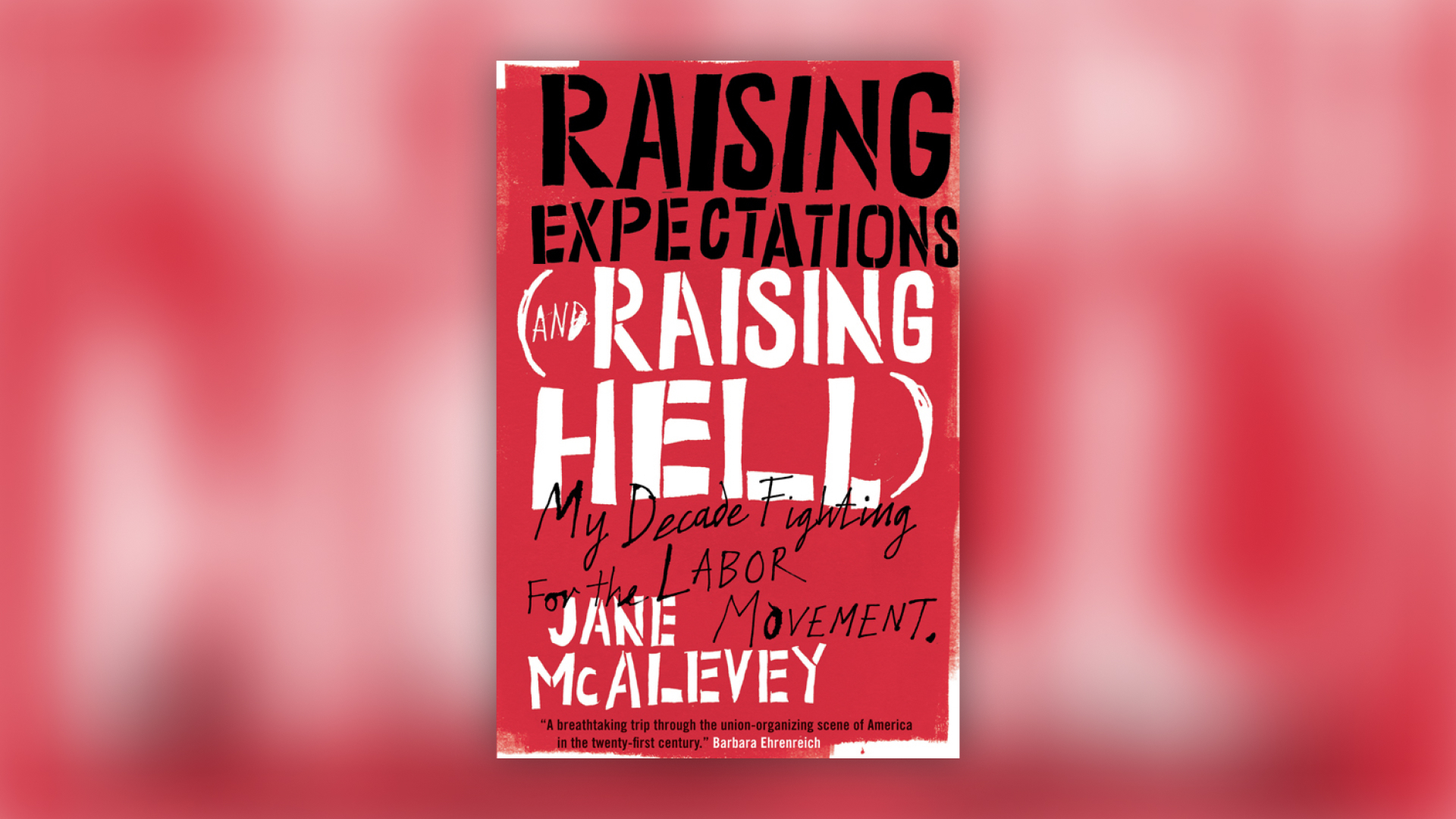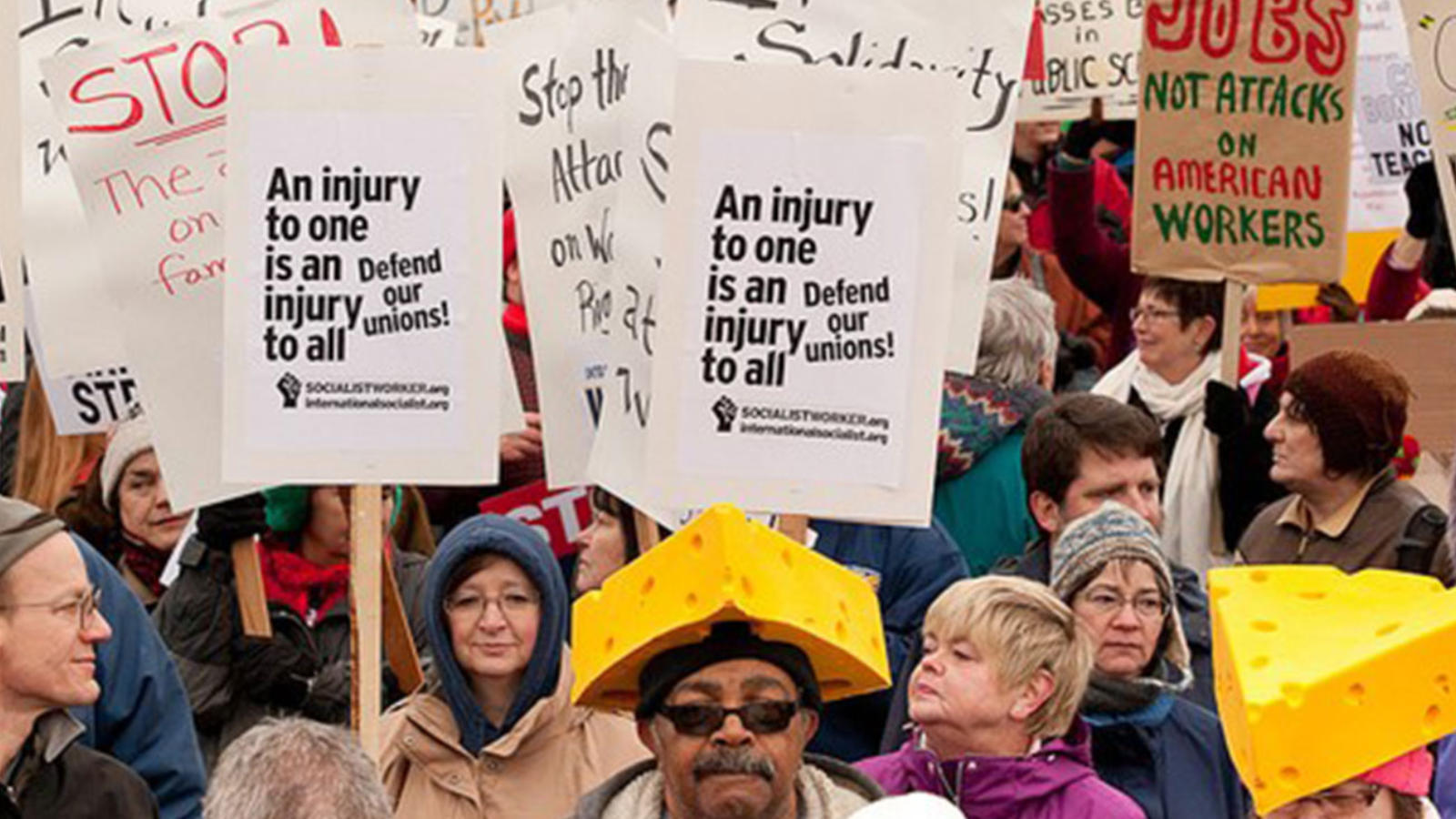Reviews
Raising Expectations (and Raising Hell) by Jane McAlevey
McAlevey shares her learnings after a decade of fighting in the union movement.
Stephanie Wong | 13 Oct 2017

McAlevely delivers the harsh truth of why trade unions are declining and what it will take to keep them alive.
Three takeaways
- Our role as organisers is to raise the expectations of what we should expect from our world, and what we are capable of.
- Unions are failing because they view workers identity through the narrow lens of work
- Power analysis, strategy and the fight itself must be shaped, driven and led by the workers: period.
Enter Jane McAlevey

There really isn't anything like a strike. Thousands of people put their life situations on the line, and there is no way to learn how to do it except by doing it.
At a time when unions are in decline, Jane McAlevey, the famous American labour movement organiser, keeps succeeding. Here she shares with us a personal account of her organising victories, and the unconventional strategies key to her successes.
Raising expectations: our role as an organiser
Our jobs as organisers are to inject hope into the situations people are surviving in and help them see that change is possible in their own hands.
Raising expectations is about what people should expect from their jobs; the quality of life they should aspire toExpectations about what they themselves are capable of, about the power they could exercise if they worked together.
Understanding power
Our success relies on our ability to build real and sustainable people power. Not bodies in a room showing up power but organised people power. People who own and know exactly what they need to do to win.
How you get this knowledge, is through what McAlevey calls a power-systems-analysis. This is a grid that maps how power moves in a given place, for a particular issue. The map identifies how much power we have, and how much we need to organise and win. The people in the fight must come face-to-face with their own power analysis, understand what their resources can do and,
Eventually enabling the workers to challenge the political and economic power structure that dominated their lives.
Whole worker
Members do not divide their lives into job concerns, which warrant energy and attention, and everything else, which is somehow trivialNote to labour: Workers relate more to their faith than to their job and fear God more than they fear the boss.
Workers are putting their lives at risk to be a part of the struggle; show them the respect they deserve. Recognise their job id a small part of a much bigger life. Once you recognise this, you can start saving your union.
Organic leaders
Too many unions are focusing on short-term numbers, which McAlevey calls mobilising. This is why unions keep losing. While too many of us focus on herding activists, McAlevey works to find the organic leaders. These folks are people who may not be pro-union, or pro taking action but they have people who follow them. So how do you find them?
You ask which person on a shift the others would go to if they wanted to learn how do things better. Or whom they would talk to if they had a problem with their supervisor or a coworker. You proceed systematically, really listening to what people say.
Once you get organic leaders on side, you get them to work on the power analysis; then and only then do you have a real shot at winning.
The ugly underbelly of trade union culture
McAlevey does not shy away from the personal and lifts up the ugly underbelly of trade union culture. The internal in-fights, sexism, lack of accountability and bitter egos.
Pervasive sexism among the men who are most in control of the resources in unions today. It plays out in ways that go far beyond obvious issues, such as the lack of women in leadership positions.
Despite these challenges, McAlevey loves the Unions and her work. She sheds light on the deep distrust, in the hope that something new might grow.
This is why people always do go back to labor. Labor is the only place you can get the resources you need to fight like that, to know that much possibility.
There is hope
McAleveys grit, anger and determination shines throughout and is a must-read for anyone trying to build a better world. Raising Expectations (and Raising Hell) ends with hope: the trade unions can be revived. It will take a lot of work and go back to the roots of deep organising, but McAlevey proves it can be done.